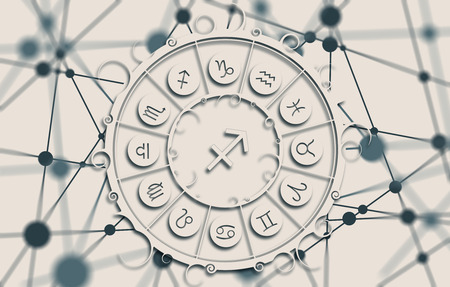Introduction to Astrological Houses: Setting the Stage in British Context
Throughout the winding corridors of British history, the concept of astrological houses has echoed quietly yet persistently, weaving its way from medieval courts to modern-day drawing rooms. To truly appreciate the significance and enduring allure of these celestial divisions, we must first grasp what astrological houses represent within Western astrology. Imagine the sky as a great celestial clock, with twelve distinct segments—each house governing a particular realm of human experience, from one’s innermost self to relationships, aspirations, and public standing. In Britain, this cosmic framework was more than mere superstition; it became part of the cultural tapestry, influencing decisions at royal courts and sparking lively discussion among learned societies. The language of houses—first, second, twelfth—entered folklore and daily speech, carrying with it whispers of fate and potential. As we begin our journey through the history and evolution of astrological houses, let us attune ourselves to their resonance in British life: a subtle yet persistent current running beneath centuries of tradition, belief, and quiet curiosity.
2. Ancient Beginnings: The Roots of Astrological Houses
The enchanting story of astrological houses in Western astrology begins long before the foggy moors and stone circles of Britain, deep within the cradles of civilisation—Babylon and ancient Greece. Here, the earliest sky-watchers gazed upwards, seeking meaning in the silent dance of planets and stars. These ancient astronomer-priests laid the groundwork for what would later journey across continents and cultures to eventually settle in the British Isles.
From Babylon to the Hellenistic World
In Babylon, celestial omens were charted on clay tablets, each movement across the sky imbued with divine significance. As these ideas travelled westward into Hellenistic Alexandria, scholars began dividing the heavens into twelve distinct segments—what we now call houses. Each house was seen as a stage upon which fate performed its mysterious drama.
Myth, Folklore, and the Study of Skies
When these traditions finally brushed against British shores—carried by Roman scholars, wandering druids, and curious monks—they merged with local myth and folklore. The British imagination was particularly receptive; tales of Merlin communing with cosmic forces, and druids reading omens from the stars under ancient yew trees, wove astrological houses into the very fabric of cultural storytelling.
Comparing Early House Systems
| Tradition | Main Features | Cultural Legacy in Britain |
|---|---|---|
| Babylonian | Focus on planetary omens; rudimentary division of sky segments | Early adoption by scholars; influence on medieval astrology |
| Hellenistic (Greek) | Twelve houses with specific meanings; focus on fate and fortune | Became foundational in British astrological texts post-Roman era |
This rich tapestry of myth, scientific curiosity, and local legend gave rise to a uniquely British interpretation of astrological houses—one that mingled rational study with a reverence for mystery. Thus began a legacy: from sacred groves to candle-lit monasteries, seekers in Britain have ever since looked skyward, charting not just stars but stories themselves.
![]()
3. Mediaeval and Renaissance Britain: Astrology in Practice
In the tapestry of Mediaeval and Renaissance Britain, astrology was no mere mystical curiosity; it wove itself into the very fabric of daily life, royal courts, and the hallowed halls of universities. The astrological houses—those celestial mansions—became pivotal tools for interpreting fate and fortune, guiding both sovereigns and commoners as they navigated an ever-shifting world.
The Royal Courts: Celestial Counsel for Sovereigns
Within the gilded chambers of Westminster and Windsor, British monarchs sought wisdom not only from their advisors but also from the stars above. Astrologers such as William Lilly and John Dee became fixtures at court, casting horoscopes to determine auspicious moments for coronations, marriages, and treaties. The twelve houses offered a structured lens through which rulers could divine political threats or secure their lineage, merging cosmic insight with worldly governance.
Universities: Astrology as Academic Pursuit
Astrology was more than superstition; it claimed its place among the academic disciplines taught at Oxford and Cambridge. Learned scholars pored over Ptolemaic texts and Arabic treatises, translating celestial geometry into practical guidance for everything from medical diagnosis to agricultural planning. The houses provided a systematic method for connecting individual charts with broader philosophical questions about destiny and free will—a true meeting of reason and intuition.
Everyday Life: Bridging Heaven and Hearth
Astrology’s reach extended far beyond elite circles. In bustling market towns and rural villages alike, birth charts were cast to guide marriages, predict harvests, or safeguard against misfortune. Folk customs blended seamlessly with astrological principles—the twelfth house warning of hidden enemies or the sixth house shedding light on health concerns. This deeply intuitive relationship with the heavens shaped how Britons perceived their place in the universe, grounding spiritual wisdom in everyday practice.
The intertwining of astrological houses with British society during these periods reveals not just a fascination with the stars, but a profound yearning to harmonise celestial rhythms with earthly realities—a tradition that continues to echo through British culture today.
4. Evolving House Systems: Placidus, Equal, and the British Perspective
Throughout the centuries, the calculation of astrological houses has never been a settled affair in Western astrology. In Britain, where philosophical debate and keen discernment are cherished traditions, astrologers have long engaged in spirited discussions about which house system most truly reflects the mysteries of the heavens. Among the myriad methods developed across Europe, two systems—Placidus and Equal House—have garnered particular favour and scrutiny within British circles.
The Placidus System: Tradition Meets Precision
First popularised in continental Europe during the 17th century, the Placidus house system found fertile ground in Britain during the 19th and 20th centuries. This method, named after Italian monk Placidus de Titis, divides the celestial sphere based on time rather than space, resulting in unequal house sizes that shift according to birthplace latitude. The British appreciation for nuanced precision and subtlety resonates with this approach; many astrologers here have prized Placidus for its dynamic reflection of individual experience and fate.
The Equal House System: Simplicity and Clarity
In contrast, the Equal House system offers a straightforward alternative: each house spans exactly thirty degrees from the Ascendant. Its appeal lies in its simplicity—a quality not undervalued by the pragmatic British mind. Over the decades, particularly as astrology experienced a revival in post-war Britain, Equal House gained popularity among those seeking clarity and accessibility without sacrificing symbolic depth. This system’s enduring presence is a testament to Britain’s openness to both tradition and reform.
Comparison of Popular House Systems in Britain
| System | Key Feature | British Appeal |
|---|---|---|
| Placidus | Time-based division; Unequal houses | Favoured for nuanced interpretation and tradition |
| Equal House | 30° spatial division from Ascendant | Appreciated for clarity and ease of use |
| Koch/Regiomontanus | Other mathematical divisions | Niche following among intellectual circles |
The Spirit of Inquiry: A British Astrological Hallmark
This diversity of house systems encapsulates a very British trait: the refusal to settle for easy answers. Instead, astrologers here engage in ongoing dialogue, weighing tradition against innovation, seeking both spiritual resonance and rational consistency. Whether drawn to Placidus for its historical gravitas or to Equal House for its elegant simplicity, British astrology thrives on this culture of debate—a living testament to an island nation’s love for inquiry, discernment, and ever-evolving wisdom.
5. Astrological Houses in Modern British Culture
Astrology, once whispered about in drawing rooms and quietly tucked within the pages of Victorian almanacs, now shimmers boldly across modern British life. The astrological houses—those twelve symbolic sectors that map our lives’ journeys—are no longer the reserve of scholars or secret societies. Today, they have found new resonance in Britain’s vibrant cultural tapestry, weaving tradition with fresh innovation.
The Local Newspaper Legacy
Stroll into any British newsagent and you’ll spot them: horoscope columns nestled among sports results and weather reports. These daily predictions, often penned by local astrologers or syndicated from well-loved personalities, rely on the enduring framework of the astrological houses. The Fifth House might be invoked to foretell creative breakthroughs for Leos, while Scorpios are cautioned to mind their Eighth House secrets. Through these snippets, generations of Britons have come to associate life’s ups and downs with the ever-turning wheel of the zodiac houses—a tradition that bridges the old world with new morning routines.
The Spiritual Renaissance
Yet the story does not end at ink and paper. In recent years, Britain has witnessed a spiritual renaissance—a gentle rebellion against cold rationalism and a revival of mystical curiosity. Astrology circles gather in London cafés, and workshops pop up from Brighton to Edinburgh, inviting seekers to map their birth charts under candlelight. Here, the astrological houses become living archetypes: the Fourth House is reimagined as ancestral healing, while the Eleventh House inspires digital-age community building. The British gift for storytelling breathes life into each house, allowing tradition to dance with contemporary needs.
Blending Tradition and Innovation
This evolution is quintessentially British—a subtle blend of reverence for history with an eye for reinvention. On social media platforms, young astrologers reinterpret the houses using local slang and pop culture references. Podcasts discuss how Brexit echoes Saturn’s transit through the Tenth House of national identity, while TikTok astrologers offer quick-fire readings peppered with dry humour. Through it all, the fundamental wisdom of the houses remains intact but is clothed anew in modern idioms and concerns.
The result is a uniquely British approach to astrology: respectful of its ancient roots yet ever-adaptable to shifting times. Whether over a cup of tea or scrolling through a smartphone, today’s Britons find comfort, insight, and connection through these twelve celestial chambers—proof that the language of the stars still speaks powerfully beneath cloudy English skies.
6. A British Lens: Astrology, Identity, and Integration
The winding lanes of Britain’s history are steeped in social nuances, wit, and a profound sense of individual and collective identity. To gaze upon the astrological houses through this uniquely British lens is to witness a dance between tradition and idiosyncrasy, where ancient symbolism meets everyday life with a subtle wink. The deeply ingrained class consciousness—a tapestry woven from centuries of monarchy, industry, and social mobility—infuses interpretations of the astrological houses with layers of meaning that are both personal and communal. Each house becomes not just an abstract archetype but a reflection of lived experience: the fourth house echoing ancestral homes across windswept moors; the tenth house mirroring aspirations shaped by both privilege and grit.
The Eccentric Spirit
Britain’s renowned eccentricity finds its way into astrological practice as well. There is a delight in the peculiar—a penchant for blending the mystical with the mundane. Astrological houses here are not static rooms but living spaces, reimagined through folklore, irreverent humour, and even rebellion against convention. Whether it’s reading one’s chart over tea or weaving astrological symbolism into literature and art, there exists a gentle defiance that resists any singular interpretation. This spirit keeps astrology agile and refreshingly unpredictable, much like the weather over the Isles.
The Power of Storytelling
Perhaps most potent is Britain’s love affair with storytelling—a cultural current running from Chaucer to contemporary podcasts. Astrological houses become stages upon which personal myths unfold. Britons may explore their twelfth house not only for hidden fears but also as a place to cultivate poetic solitude; they might see their fifth house as a backdrop for Shakespearean drama in love or creativity. The stories spun around these houses integrate past and present, weaving together family lore, regional identity, and personal growth.
Integration in Modern Life
As Britain continues to evolve—welcoming new voices while honouring tradition—the relationship with astrological houses remains dynamic. In today’s multicultural society, these celestial blueprints offer a way to bridge heritage with individuality, inviting dialogue between old-world beliefs and contemporary realities. Astrology here is not merely predictive; it is reflective—a mirror polished by centuries of change yet always open to reinterpretation. Through class distinctions, eccentric customs, and the ongoing art of storytelling, Britons continue to find resonance and renewal within the ever-turning wheel of astrological houses.


